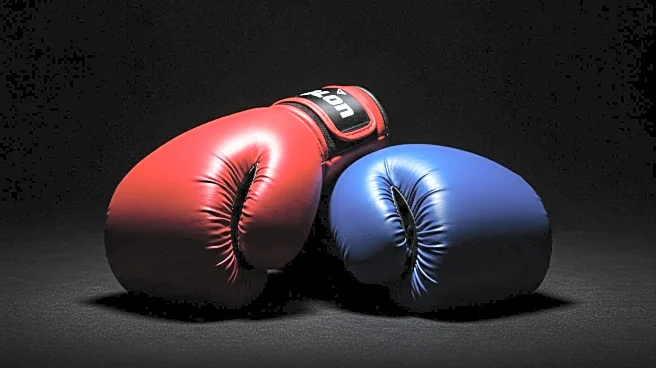What's Happening?
Dwight Muhammad Qawi, a Hall of Fame boxer known for his remarkable journey from prison to becoming a two-weight world champion, has died at the age of 72. Qawi, originally named Dwight Braxton, grew up in Camden, New Jersey, and began boxing while serving a sentence for armed robbery at Rahway State Prison. He turned professional in 1978 after his release. Qawi won the WBC light heavyweight title in 1981 and later the WBA cruiserweight title in 1985. He was known as 'The Camden Buzzsaw' for his aggressive fighting style. After retiring in 1998, Qawi worked as a boxing trainer and youth advocate.
Why It's Important?
Dwight Muhammad Qawi's story is significant as it highlights the transformative power of sports and personal redemption. His journey from incarceration to world champion serves as an inspiring example of overcoming adversity. Qawi's success in boxing not only brought him personal acclaim but also contributed to the sport's history, particularly in the light heavyweight and cruiserweight divisions. His post-retirement work as a trainer and counselor further underscores his impact on the community, offering guidance and support to young athletes and individuals struggling with substance abuse.
What's Next?
The boxing community is likely to honor Qawi's legacy through tributes and memorials, celebrating his contributions to the sport and his role as a mentor. His passing may prompt discussions on the importance of rehabilitation programs in prisons and the potential of sports as a tool for personal development and societal reintegration. Organizations involved in boxing and youth advocacy might explore ways to continue his work, ensuring his influence endures beyond his lifetime.
Beyond the Headlines
Qawi's life story raises broader questions about the role of sports in rehabilitation and the potential for individuals to change their life trajectories through discipline and dedication. His conversion to Islam and name change reflect personal growth and identity transformation, which may resonate with those seeking similar paths. The ethical dimensions of his journey, including the challenges faced by former inmates in reintegrating into society, highlight ongoing societal issues related to criminal justice reform.










